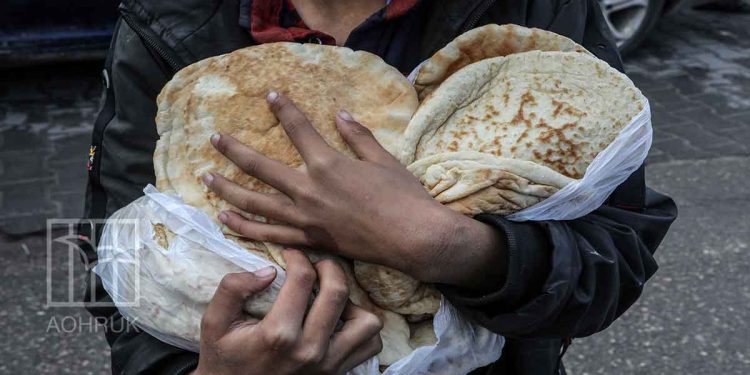The United Nations Relief and Works Agency for Palestine Refugees (UNRWA) has warned that residents of the Gaza Strip are no longer able to afford food amid soaring prices and the total loss of income sources.
In a statement posted on its official X account, UNRWA said that “the destruction of farms and local production sources, along with the complete collapse of the economy, has left Palestinians unable to secure even their most basic food needs.” The agency called for unrestricted humanitarian access to support the agricultural sector and alleviate the deepening suffering across Gaza.
UNRWA Commissioner-General Philippe Lazzarini stressed that “the flow of aid must be unrestricted, both for UNRWA and for international humanitarian organisations,” referring to Israel’s continued obstruction of essential supplies for over seven months, despite the enforcement of a ceasefire.
The warning comes as UNRWA confirms that it has food stocks outside Gaza sufficient to meet the population’s needs for three months, but remains unable to bring them in due to Israeli restrictions on border crossings.
The agency emphasised that “the ongoing Israeli restrictions on the entry of aid constitute a major obstacle to any genuine humanitarian effort to save the population from starvation.”
The humanitarian situation in Gaza has now moved beyond crisis to “total collapse”, with no electricity, a lack of safe drinking water, and rising levels of malnutrition among children and women, amid a suffocating blockade and near-total ban on the entry of food, fuel, and medicine.
The deliberate deprivation of civilians of food and humanitarian assistance during armed conflict constitutes a war crime under international humanitarian law, specifically Article (54) of Additional Protocol I to the 1977 Geneva Conventions, which prohibits “starvation of civilians as a method of warfare.”
Similarly, Article (8/2)(b)(25) of the Rome Statute of the International Criminal Court classifies “intentionally starving civilians by depriving them of objects indispensable to their survival” as a war crime subject to international prosecution.
The systematic and deliberate starvation of Gaza’s population, through the destruction of livelihoods and the obstruction of aid, is not merely a humanitarian violation; it amounts to an act of genocide under Article II of the 1948 Convention on the Prevention and Punishment of the Crime of Genocide, which criminalises “causing serious bodily or mental harm to members of a national or ethnic group with intent to destroy it in whole or in part.”
What is happening in Gaza demands urgent international action to refer the case of mass starvation to the International Criminal Court as part of the ongoing genocide against the Palestinian people.




























